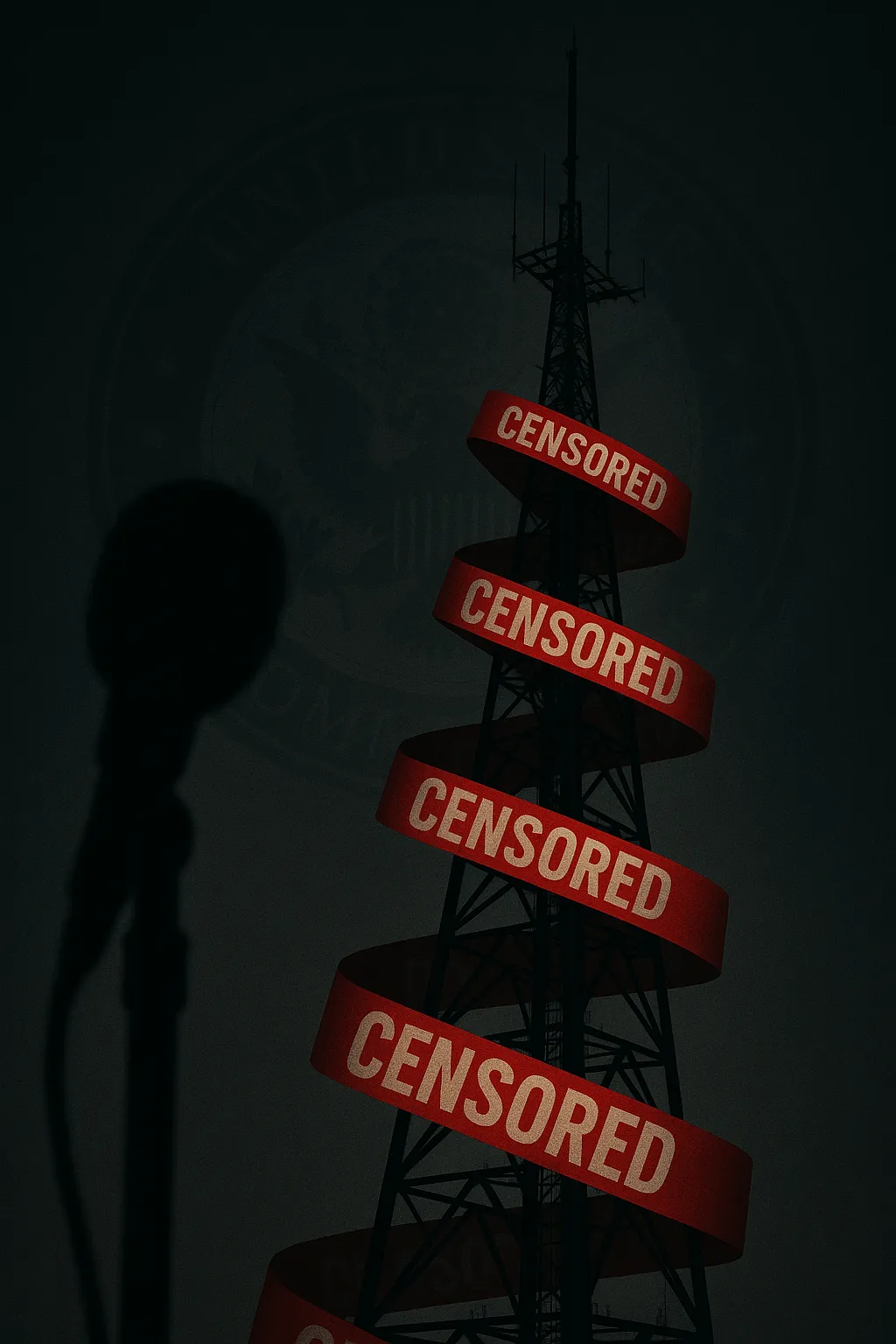Trump’s Broadcast License Threat Sparks McCarthyism Fears

President Donald Trump threatened federal regulators to revoke television licenses from broadcasters airing late-night hosts’ criticisms Wednesday, prompting congressional Democrats to introduce free-speech legislation in response.
The proposed bill, unveiled on Capitol Hill Thursday, aims to strengthen First Amendment protections for media outlets facing government retaliation.
Lawmakers warn that Trump’s coercive tactics mirror McCarthyism’s era of intimidation and censorship in the 1950s, underscoring the urgent need for legal safeguards.
A New Red Scare on the Airwaves
Trump publicly urged the Federal Communications Commission to strip broadcasters of their licenses if they continue to feature hosts who “attack the president,” marking an unprecedented attempt to weaponize broadcast regulations against political dissent.
Democratic leaders condemned the move as an assault on free speech and an echo of Senator Joseph McCarthy’s witch hunts, where accusations of disloyalty and subversion triaged careers and silenced opposition.
Nut Graf
With the President leveraging his regulatory authority to punish critical commentary, Democrats say the First Amendment is under threat. Their bill would prohibit federal agencies from conditioning licenses or permits on the content of protected speech, ensuring government officials cannot blacklist or boycott media voices.
Legislative Details and Reactions
- Bill Sponsors: Sen. Elizabeth Warren (D-Mass.) and Rep. Adam Schiff (D-Calif.) introduced the “Media Freedom Act,” granting broadcasters private causes of action against FCC overreach.
- Key Provisions:
- Bars denial, suspension, or revocation of any broadcast license based on political viewpoint.
- Empowers courts to award damages to outlets forced off air.
- Broadcaster Response: Major networks expressed relief at the legislation; ABC and NBC issued statements reaffirming their commitment to editorial independence.
Historical Parallel
During the Red Scare, McCarthy’s accusations of Communist infiltration led to televised hearings that ruined reputations and careers. Today’s threats against journalists evoke that same climate of fear, where government power is used to stifle dissent rather than punish wrongdoing.
What’s Next
The bill faces a likely party-line vote in both chambers. Republicans have signaled they will oppose any constraints on the FCC’s authority, setting up a high-stakes clash over free speech ahead of the 2026 midterms.
Observers say Friday’s committee mark-up will be a critical test of Congress’s willingness to rein in executive overreach and protect the nation’s free‐press tradition.
Categories
Autos and vehicles Beauty and fashion Business and finance Climate Entertainment Food and drink Games Health Hobbies and leisure Jobs and education Law and government Other Politics Science Shopping Sports Technology Travel and transportationRecent Posts
Tags
Archives
08/19/2025 (3) 08/20/2025 (40) 08/21/2025 (27) 08/22/2025 (22) 08/23/2025 (4) 08/24/2025 (21) 08/25/2025 (30) 08/26/2025 (24) 08/27/2025 (29) 08/28/2025 (16) 08/29/2025 (9) 08/30/2025 (13) 08/31/2025 (17) 09/01/2025 (167) 09/02/2025 (124) 09/03/2025 (149) 09/04/2025 (112) 09/05/2025 (72) 09/06/2025 (169) 09/07/2025 (162) 09/08/2025 (150) 09/09/2025 (176) 09/10/2025 (194) 09/11/2025 (194) 09/12/2025 (186) 09/13/2025 (207) 09/14/2025 (159) 09/15/2025 (175) 09/16/2025 (198) 09/17/2025 (196) 09/18/2025 (196) 09/19/2025 (207) 09/20/2025 (129) 09/21/2025 (4)